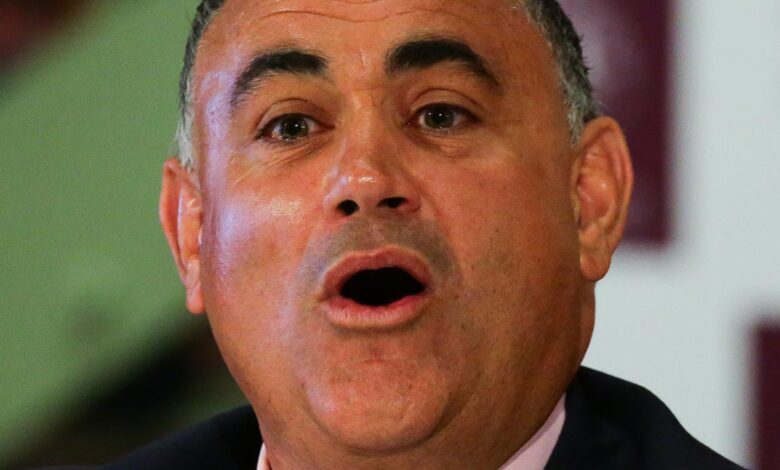Nationals, Labor and SFF all pledge support for coalmining as Upper Hunter by-election campaign ramps up

[ad_1]
As the Nationals scramble to hold a crucial seat in NSW’s coalmining heartland, their leader has made a bold proclamation to impress voters.
NSW Nationals leader and Deputy Premier John Barilaro has declared that coalmining will be part of the Upper Hunter landscape “forever” as the party scrambles to keep the crucial seat that’s up for grabs in a coming by-election.
The Nationals, Labor and Shooters, Fishers and Farmers parties have all pledged diehard support for the coalmining industry in Upper Hunter, a major source of local jobs.
The seat opened up after the former local representative, Nationals MP Michael Johnsen, resigned in the wake of an allegation he raped a sex worker.
Mr Johnsen, who denies the allegation, was first elected in 2015. The Nationals have held the seat for decades.
Losing the seat would mean the Liberal and National Coalition government would be in a minority in the NSW parliament.
At a Wednesday campaign stop in Singleton alongside Premier Gladys Berejiklian and Nationals hopeful David Layzell, Mr Barilaro made the bold statement that coalmining would never end in the region.
“Coalmining will be part of this landscape today and forever,” Mr Barilaro said.
It’s a statement that is contradicted by many experts – and even Mr Barilaro’s own words.
In a 2020 document spelling out the state government’s position on the future of coal, Mr Barilaro said in the foreword that coal would likely have a “finite lifespan” as an energy source.
“Recognising that coal is likely to have a finite lifespan as an energy source, we will work to support coal-dependent communities to diversify for the future, ensuring they remain vibrant places to live with good employment opportunities,” Mr Barilaro said in the strategic statement.
Labor has put forward a coalminer and union official as its Upper Hunter candidate. Leader Jodi McKay said at a campaign event this week she wanted more coalmines to be approved in the area.
“We do not support a moratorium on coalmines, let’s get that out of the way straight away,” she told reporters.
The candidate, Jeff Drayton, described himself as a “proud coalminer” and said he would fight for the sector if elected.
“Every time I open the newspaper, every time I turn the TV on, I see someone having a go at coalminers, and that has to stop,” he said.
The SFF, one of the Nationals’ biggest rivals and a party that has snatched their seats in recent elections, has put forward Sue Gilroy as its candidate.
She, too, has pledged support for the coal industry and has a background working as a nurse treating coal workers.
Energy Security Board chair Kerry Schott warned in February that many coal power stations risked going broke within years as renewable alternatives were on their way to making them unprofitable.
Worldwide demand for coal is shrinking, with experts predicting that trend is unlikely to change.
[ad_2]
Source link




